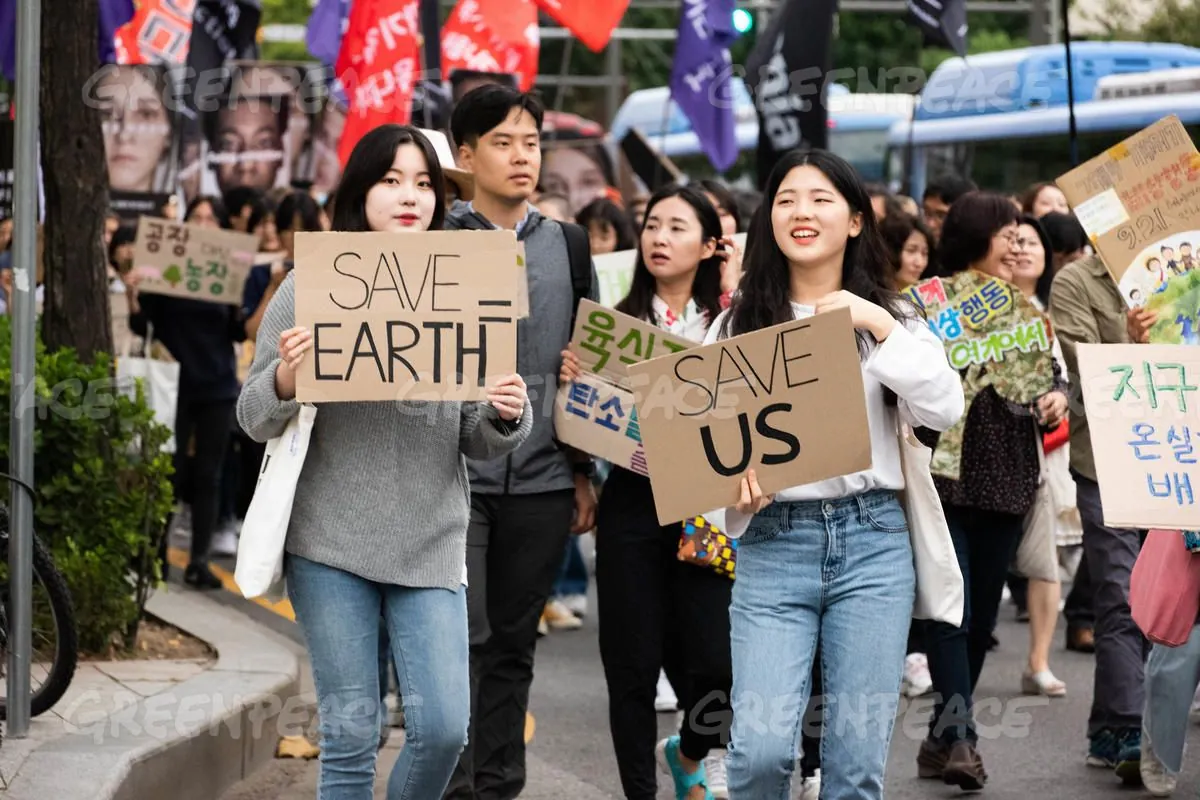Massive Climate Protest in Seoul Demands Stronger Government Action
Over 30,000 protesters gathered in Seoul, calling for more aggressive climate policies. The demonstration, occurring during a heatwave, highlighted the urgency of addressing global warming in South Korea.

In a significant display of public concern over climate change, more than 30,000 protesters assembled in Seoul, South Korea, on September 7, 2024. The demonstration, organized by the 907 Climate Justice March Group Committee, took place amid sweltering temperatures exceeding 30°C (86°F), underscoring the urgency of the climate crisis.
South Korea, the world's 10th largest economy and 8th largest carbon dioxide emitter, faces mounting pressure to accelerate its climate action. The country aims to achieve carbon neutrality by 2050, but critics argue that current efforts are insufficient. As one of the world's most technologically advanced nations, with limited natural resources and heavy reliance on energy imports, South Korea's transition to sustainable practices is both challenging and crucial.
The protest, held in the bustling Gangnam district, aimed to capture the attention of major corporations headquartered in the area. Demonstrators carried banners with messages such as "Climate justice" and "Protect our lives!" expressing their frustration with the current administration's climate policies.

The event followed a landmark ruling by South Korea's Constitutional Court, which declared the nation's climate change law inadequate in protecting basic human rights and future generations. This decision has intensified calls for more robust climate legislation and action.
Yu Si-yun, an environmental activist leading the protest, highlighted the impact of extreme weather on daily life:
"Truth is, without the air conditioner this summer was not liveable and people could not live like people. We are facing a problem not unique to a country or an individual. We need systemic change and we are running out of time to act."
The effects of climate change are becoming increasingly apparent in South Korea. The country has experienced a record 20 consecutive "tropical" nights, with temperatures remaining above 25°C (77°F). This prolonged heat is not only affecting human comfort but also impacting various sectors, including agriculture. Farmers report that the quality and quantity of napa cabbage, a key ingredient in kimchi, are suffering due to intensifying heat.
South Korea's climate challenges are compounded by its status as a major coal polluter among G20 economies, second only to Australia. The government has pledged to phase out coal power by 2050 and has introduced a carbon trading scheme. However, progress in adopting renewable energy sources has been slow, and the country recently lowered its 2030 industrial emissions reduction targets while maintaining its overall goal of cutting emissions by 40% from 2018 levels.
As one of the world's most educated populations, South Koreans are increasingly aware of the need for climate action. Kim Ki-chang, a 46-year-old novelist participating in the protest, emphasized the intergenerational nature of the climate crisis:
"This would be a much bigger threat and survival issue to younger generations than the older ones, so I think the older generation should do something more actively for the next generation."
As South Korea continues to navigate the challenges of climate change, the massive turnout at this protest sends a clear message to both the government and corporations: urgent and decisive action is needed to address the climate crisis and secure a sustainable future for all generations.


































